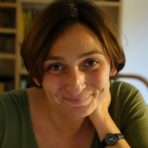
ALESSANDRA GARIBOLDI is a senior researcher and consultant in the fields of visitor studies and cultural project evaluation, with a primary focus on audience engagement and participatory approaches. She’s Coordinator of the Research and Consulting Department of Fondazione Fitzcarraldo, and collaborates with the Cultural Observatory of Piedmont, Italy. As researcher and trainer she’s been involved in three EU funded project on audience development: ADESTE (Audience Developer Skills and Training in Europe), CONNECT (Connecting Audiences) and Be SpectActive, whose aim is to test and develop performing arts projects actively involving audience in programming. She is adviser and mentor within national funding programs for empowering cultural organizations through entrepreneurship and a deeper relation with communities, such as IC_Cultural Innovation, CheFare, Culturability and fUNDER35, all promoted by Italian private institutions. She is passionate about arts and strongly believes they must be at the very heart of social development. Among her publications/essays on visitor studies and impact evaluation of cultural policies, she has co-authored: Study on Audience Development – How to place audiences at the centre of cultural organisations (2017), Mapping of practices in the EU Member States on Participatory governance of cultural heritage, to support the OMC working group under the same name (Work Plan for Culture 2015-2018).
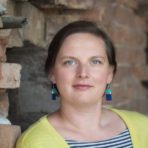
ALMA R. SELIMOVIĆ has a master’s degree in Management of non-profit organizations and a bachelor’s degree in Cultural studies at the Faculty for Social Sciences in Ljubljana. She also holds a European Diploma of Cultural Management by Marcel Hicter Foundation and she studied Cultural Management at the City University, London on a British Council scholarship. She has joined the Bunker team in 2003 as part of the production team for the Mladi levi festival and has stayed with Bunker ever since (production, PR) and also managed some other activities of Bunker (volunteer programs, European Cultural Capital bid …). In 2009 she worked for an advertising company Formitas BBDO Pleon in Ljubljana as an Account Director and Head of PR department. Her clients were: European Commission (DG TREN, DG SANCO, DG COMM), Unilever, Spar, Nokia Siemens Networks … In 2010 she has returned to culture and has been the producer of the festival Mladi levi, festival Drugajanje in Maribor, Festival of letters in Ljubljana (focus on typography). She was also the communications officer for the Slovene dance platform Gibanica. Currently she is the Development Director for Bunker, focusing mainly on fundraising, development of projects bringing together education and art and heading the Create to Connect network. She is interested in cultural policies, linking contemporary art with formal education, and art as a generator of social change and innovation.
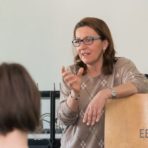
CRISTINA DA MILANO holds a degree in Archaeology (University of Rome); the Diploma of Fine and Decorative Arts from Antiquity to 1450 (Royal Society of Arts, London); the MA in Museum Studies (Department of Museum Studies, University of Leicester); the MA in Technological Instruments for the Economic Evaluation of Cultural and Environmental Heritage (University of Ferrara). From 1996 she has been member of ECCOM (European Centre for Cultural Organisation and Management) and in 2010 she became its president. She participated in several research projects at a national and international level on the issue of the social role of museums and of lifelong learning processes within museums, subjects on which she has published several papers. She has also managed many European-funded projects within the framework of the programmes Lifelong Learning 2007-2013, Culture 2007-2013 and Creative Europe programme. She has taken part as senior researcher in the “Study on Audience development: how to put audiences at the centre of cultural organizations” funded by the DG Culture and Education of the EU Commission. She is a lecturer in many post-graduate courses and Masters. She is a member of the board of directors of Culture Action Europe and Teatro di Roma.

JONATHAN GOODACRE is a senior consultant at The Audience Agency based in the UK and is responsible for their international work including Adeste and Connect. He is part of the Pedagogic Team of the Association Marcel Hicter. Jonathan has contributed to books such as ‘Turning the Tide’ about arts regeneration projects (Momentum, UK 2007), ‘Sustaining Cultural Development’ (Gower, UK 2013) and ‘Culture at the Edges’ (Marcel Hicter, Belgium 2014). Before joining The Audience Agency in 2013, he worked for a variety of arts and cultural organisations including a cultural centre, touring agency, university, festival, community organisation and consultancy.
The Audience Agency works in the UK and internationally to help museums, arts, heritage and other cultural organisations understand their audiences and increase public engagement and reach. It is a partner of the Connect project which is researching and setting training standards in audience development across the arts, heritage and cultural sectors in Europe and contributed to the Engage Audiences initiative for the European Union.
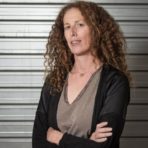
MARY MCCARTHY is a Director of the National Sculpture Factory, Cork. The National Sculpture Factory (NSF) is an organisation which provides and promotes a supportive and enabling environment for the making of art and the realisation of creative projects. It supports artists and their practices through studio facilities, residencies, lecture programmes, cultural exchanges, masterclasses and professional development as well as by initiating ambitious commissions and opportunities. Previously Mary was the first Executive Arts and Culture manager for Dublin Docklands Development Authority. While in that role, she was responsible for the integration of the arts across the Dublin Docklands organization and for the development + implementation of their arts and culture strategy. Previous to that, she was Director of Programmes and Deputy Director for Cork 2005, the company established to manage Cork’s designation as European Capital of Culture. While there she was responsible for the initiation of many large scale civic programmes as well as new works and commissions. Mary is currently Chair of Culture Ireland’s EAC , and a Board member of the Irish Museum of Modern Art (IMMA) She has previously been an international expert panel to assess future Capitals of Culture and frequently moderates international forums and events.

NIELS RIGHOLT is the managing director of CKI – the Danish Centre for Arts and Interculture. he has a broad background and experience from more than 25 years in the arts field. He has worked as Head of Information, Producer, Artistic Director, Cultural Political Developer, Managing Director and Political Advisor within a variety of cultural institutions and organizations over the years, among others, as Managing and Artistic Director of the Dunkers Arts Centre in Helsingborg, Sweden, as Chief Curator and producer for Møstings Hus & Byggeriets Hus, Copenhagen and as co-founder of the intercultural magazine and communication bureau Cultures. At present Niels is lecturing and counseling widely both in Europe and outside it. He has been involved in policy design processes in the Copenhagen Culture Region, Region Western Gothia in Sweden, the Greater Oslo Region, Nordic Council of Ministers as well as on a municipal level in all Scandinavian countries. He is a board member of, among others Inkonst in Malmö, Sweden, Teatergrad in Copenhagen and the Audience Europe Network. Niels has a background in Literature, Modern Culture & Cultural Communication and Spanish Culture & Language from the University of Copenhagen.

PAUL BOGEN With over thirty-five years experience in the sector, since 2008 Paul has been a project manager, consultant, fund-raiser, researcher, mentor and trainer working for a wide range of public and private clients in over twenty European countries. Since 2010, Paul has obtained €8 million in European grants for his own and others’ projects.
Currently, Paul is producing Creative Lenses, a 4-year EU Creative Europe project to research and develop sustainable models for the sector, running Escalator – a capacity building programme for independent organisations and artists in Slovakia, supporting the management of two large-scale Creative Europe projects and is the financial strategist for NIE Theatre Company. Paul is a co-director of Olivearte Cultural Agency, was Director of The Junction Arts Centre, Cambridge from 1989-2016, President of the European network of Cultural centres, Trans Europe Halles from 1999-2007, an assessor for the EU’s Culture Programme 2007-13, has been on the board of director’s for six arts and cultural organisations and is a fellow of the Royal Society of Arts. During his career, Paul has opened, managed and developed a range of performance and music venues including building a €10 million theatre in Cambridge. In 2017, Paul moved to the island of Gozo with his wife Mila where they are currently researching creating a personal and professional development + well-being retreat centre.

SOFIA TSILIDOU works at the Hellenic Ministry of Culture and Sports – Directorate of Museums, where she is mainly responsible for European cooperation on museum and heritage issues. Since 2013, she has been an appointed national expert at the Cultural Affairs Committee of the Council of the EU and since 2011 an elected member of the Executive Board of NEMO/Network of European Museum Organisations. Sofia has participated as a national expert in various EU working groups, networks and EU-funded projects of transnational cultural cooperation. She has also been involved with the promotion and raising of awareness of cultural heritage and museums at national level, as well as with the organization of national and international temporary archaeological exhibitions. She holds a B.A. in Archaeology and History of Art from the National and Kapodistrian University of Athens, Greece and a M.A. in Gallery Studies from the University of Essex, UK.

TIJANA PALKOVLJEVIĆ BUGARSKI graduated from the Faculty of Philosophy, Department of Art History in Belgrade, in 1999 and finished her master studies at the same Faculty in 2003. She defended her doctoral thesis at the Department of Art History – Museology and Heritology in September, 2016. Her research field involves the study of international and national art of the 20th century and issues on education, management and marketing in museums. Since 2001, she has been employed at the Gallery of Matica srpska in Novi Sad and in 2010 became its director. Moreover, she is engaged in creating and publishing programs and editions of the Gallery, as well as in creating educational programs for children. So far she has implemented numerous exhibitions and has authored several books, catalogues and articles in professional journals. She is also a lecturer at the University of Novi Sad, Faculty of Technical Sciences, Department of Architecture and Urban planning for the subject History of Art and Curatorial Practices. In 2017, she was elected president of the Executive Board of the Foundation Novi Sad – European Capital of Culture 2021.
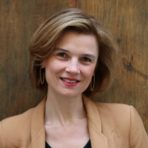
ARMELLE STÉPIEN graduated in communication and theatre studies and spent the bulk of her professional career as Manager of Communications and Public Relations. Her career path began at the theatre Théâtre national de la Colline, where she worked for fifteen years, after which she moved to the theatre Comédie de Reims in 2008, and to the theatre Théâtre national de Chaillot in 2013. Since 2015, she has been working at the theatre Odéon-Théâtre de l’Europe. She also teaches the course ˝Cultural Audiences˝ at the graduate study programme in public affairs at the Sciences Po Institute of Political Studies.
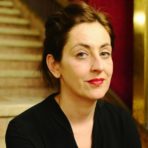
SLOBODANKA MIŠKOVIĆ has a degree in Sociology from the University of Zagreb. She has worked in culture since 1993 including, over the years, as producer and cultural program coordinator for different organizations (Trafik, Drugo more). In 2003 she started working for the city of Rijeka’s Department of Culture’s library, publishing and film section. In 2004 she participated in the organization of 19th World UNIMA Congress as well as serving as the executive producer of the international puppet theatre festival that took place alongside the congress in Rijeka and Opatija. In 2008 she participated in and coordinated the initiative to establish the local art cinema which she’s been in charge of ever since. Between 2009 and 2014 she was head of Rijeka’s Depatment of Culture’s Film section. In 2009 she coordinated and implemented the Agreement for strengthening local filmmaking industry. She brokered a deal between the Croatian Audiovisual Center and the city of Rijeka which ensured funding for short and medium length authorial films. This agreement financed 28 films whose authors, production, or themes were connected with Rijeka and also made a significant increase in and strengthened local creative and production capacities. Since 2014 she has been the managing director of the Art-kino public cultural institution and a board member of Croatian Independent Cinemas Network.
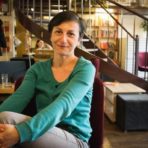
MILJENKA BULJEVIĆ is a cultural operator and translator who focuses on promotion of literature and reading habits as well as on non profit cultural management and networking. She is a co-founder of Kulturtreger and the manager of its literary club Booksa in Zagreb. From 2010 to 2016, Miljenka was the chairwoman of Alliance Operation City, a platform of local organizations active in the field of independent culture and youth in Zagreb which co-founded POGON – Zagreb center for Independent Culture and Youth with the City of Zagreb. In June 2016 she became the chairwoman of Clubture, national network of independent cultural organizations in Croatia. She is a member of the Editorial Board of European network of cultural journals Eurozine.
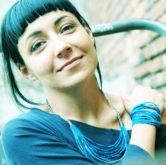 AGATA ETMANOWICZ made peace with being sentenced to “life in cultural sector” but is grateful for regular visits from/in other sectors. She’s the president of Impact Foundation (supporting audience development processes in organisations/institutions), cooperates with Fabryka Sztuki in Łódź and its Art_Inkubator (a home for young creative entrepreneurs). Works with organisations from all over Europe (any beyond…). She also co-founded the Poland Without Barriers Foundation and is a volunteer, supporter and biggest fan of wheelchair rugby.
AGATA ETMANOWICZ made peace with being sentenced to “life in cultural sector” but is grateful for regular visits from/in other sectors. She’s the president of Impact Foundation (supporting audience development processes in organisations/institutions), cooperates with Fabryka Sztuki in Łódź and its Art_Inkubator (a home for young creative entrepreneurs). Works with organisations from all over Europe (any beyond…). She also co-founded the Poland Without Barriers Foundation and is a volunteer, supporter and biggest fan of wheelchair rugby.












 AGATA ETMANOWICZ made peace with being sentenced to “life in cultural sector” but is grateful for regular visits from/in other sectors. She’s the president of Impact Foundation (supporting audience development processes in organisations/institutions), cooperates with Fabryka Sztuki in Łódź and its Art_Inkubator (a home for young creative entrepreneurs). Works with organisations from all over Europe (any beyond…). She also co-founded the Poland Without Barriers Foundation and is a volunteer, supporter and biggest fan of wheelchair rugby.
AGATA ETMANOWICZ made peace with being sentenced to “life in cultural sector” but is grateful for regular visits from/in other sectors. She’s the president of Impact Foundation (supporting audience development processes in organisations/institutions), cooperates with Fabryka Sztuki in Łódź and its Art_Inkubator (a home for young creative entrepreneurs). Works with organisations from all over Europe (any beyond…). She also co-founded the Poland Without Barriers Foundation and is a volunteer, supporter and biggest fan of wheelchair rugby.